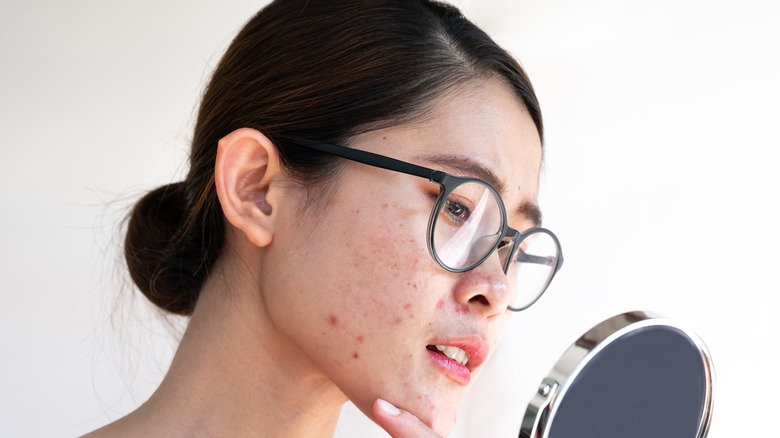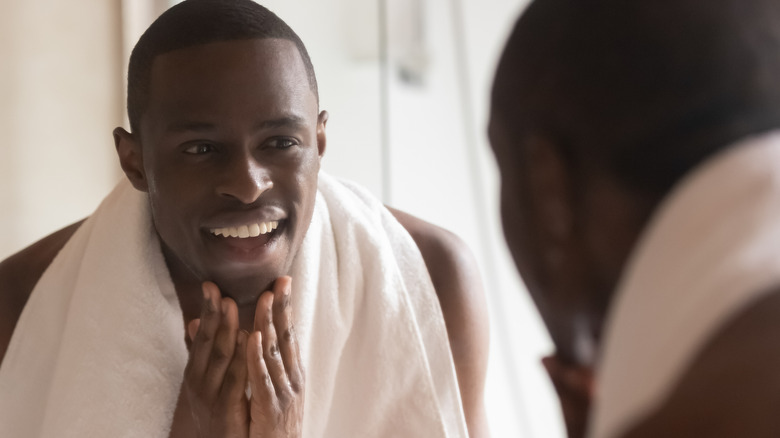If You Have Bad Acne, This Could Be Why
If you have acne, you aren't alone. The American Academy of Dermatology Association states that this unpleasant skin condition is widely prevalent in the United States, affecting around 50 million people on a yearly basis. The inflammatory condition is characterized by lesions that are typically caused by the buildup of oil and dead skin cells in the hair follicles of the skin, as per the National Institutes of Health. There are different types of acne as well, ranging from whiteheads to pustules, blackheads, and nodules.
If you have acne, there likely isn't just one cause. The Mayo Clinic points out that the skin condition can be linked to many factors, including hormones, age, stress, medications, and diet. You may also be more prone to acne if you have a family history of it.
New research is finding additional causes for acne. A 2015 study published in Science Translational Medicine found evidence that excess vitamin B12 in the body can lead to pimple outbreaks. This vitamin has been shown to wreak havoc on a specific skin bacteria linked to acne.
Vitamin B12 isn't the only vitamin linked to acne, either. A 2020 study published in Clinical, Cosmetic and Investigational Dermatology discovered that people with acne are more likely to have a vitamin D deficiency, pointing to a significant correlation between this essential vitamin and the skin condition. If you are experiencing bad acne, a blood test to measure the levels of these vitamins may be in order.
How to treat acne
Regardless of the cause of acne, there are ways you can treat it. While it is always best to consult with a dermatologist for the best course of action — especially if you suspect your acne may be due to vitamin irregularities — you can also experiment with natural and over-the-counter treatments to address the symptoms, as per the American Academy of Dermatology Association (AADA).
For starters, the AADA recommends washing your face twice a day to remove oil and dead skin cell buildup. While it may seem counterintuitive, washing more frequently than this can actually worsen the condition. You should also avoid scrubbing your skin for the same reason. Any skin wash and care products should be specially formulated for acne-prone skin, meaning they aren't oil-based and are non-acnegenic and non-comedogenic. The Mayo Clinic adds that you'll want to look for products with benzoyl peroxide, salicylic acid, alpha hydroxy acids, and sulphur for their superior abilities to get rid of stubborn acne.
If you prefer a more natural approach to treating your acne, Healthline points out some powerful home remedies than you may already have lying around. Apple cider vinegar is a popular anti-bacterial and anti-fungal agent and can be applied to the skin when diluted with water. Tea tree oil can also substitute harsher chemical products without sacrificing acne-fighting power. Other natural products that can keep acne at bay are green tea, honey, and witch hazel.


